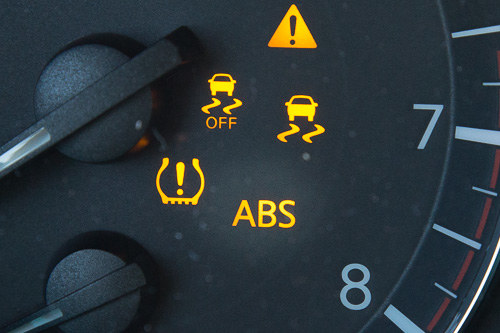
By Rick Popely, Cars.com
ABS stands for antilock braking system, and if the ABS warning light is illuminated in your gauge cluster that means the antilock system has been deactivated because of a malfunction.
Your vehicle's regular brakes should work fine, but the antilock feature that prevents wheels from locking up during braking will not work. In addition, if your vehicle has stability control and traction control, those will be disabled as well because those systems rely on the same wheel-speed sensors as the antilock system.
All 2012 and newer vehicles are required to have stability control, so they also have ABS and traction control. Many older vehicles also have some or all of those features.
The ABS warning light (usually yellow, amber or orange) should come on briefly every time you start your engine as part of a system check. If it stays on, that means something isn't working and the system has been shut down.
With ABS, sensors mounted at each wheel monitor the speed at which the wheels are turning. If one is turning slower than the others during braking, that indicates it is locking up, which could cause skidding and loss of steering control. ABS is supposed to intervene by rapidly "pumping" the brakes at the wheel that is locking up, allowing it to spin so that the driver retains braking and steering control.
What causes this:
- A blown fuse for the system
- A wheel-speed sensor that is damaged or covered by road grime
- A broken wire between the sensors and the ABS controller
- An ABS controller that has stopped working.
A pump and valve that apply the right amount of brake fluid pressure to each wheel to prevent locking can also trigger an ABS warning light when those items go bad.
If the red warning light for the regular brakes comes on, that typically means your vehicle is losing brake fluid or the brakes are so worn that you don't have normal stopping power. Either of those situations warrants immediate attention.



Leave a Reply